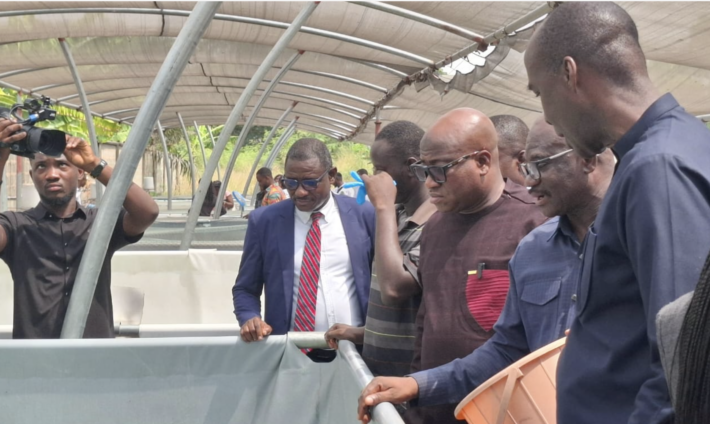Fifteen different research projects being implemented by the Council for Scientific and Industrial Research (CSIR) are on the verge of “extinction” following cutbacks in America’s foreign aid agency spending.
The projects, which the Savanna Agricultural Research Institute (SARI) is implementing as parts of efforts to boost productivity of the agriculture sector, are funded by the United States Agency for International Development (USAID).
The Management of the CSIR expressed concern over the development when Mr Ibrahim Murtala Muhammed, the Minister of Environment, Science and Technology, paid a working visit to the CSIR and some of its institutions in Accra on Tuesday.
The visit formed part of his familiarisation tour to the various agencies under his supervision to apprise himself of their operations.
The SARI is one of the 13 institutes of the CSIR, located in the Tolon District of the Northern Region of Ghana.
The USAID has been supporting SARI to improve the effectiveness of its agricultural research to ensure smallholder farmers in northern Ghana had access to quality seeds and technologies.
Professor Paul P. Bosu, the Director-General, CSIR, told journalists that the Council was exploring ways to continue with the affected projects.
“We are going to have serious shortfalls with the projects that we are implementing. We have to get ourselves ready,” he said, adding that the Council would present a paper to the sector minister to discuss ways to bridge the funding gap.
Other issues discussed included declining donor support, lack of private sector investment in research and development, lack of modern laboratories and facilities, and encroachment on CSIR lands.
The Council briefed the Minister on interventions it was undertaking to swap some of its prime lands to raise funds in support of its operations and solve the funding challenges.
Mr Muhammed expressed delight about those innovations and reiterated his vision to ensuring the commercialisation of their research findings to raise revenue.
He said the CSIR could develop varieties that had the potential to reduce the millions of dollars spent on the importation of essential food items such as rice, tomatoes, and poultry products.
The Minister tasked the various institutions under the Council to present to him a paper and make a “compelling case” to attract funding and investment to boost their operations.
“If we can find a way for some of the institutes to take up the responsibility of providing some of the basic needs of state institutions such as the School Feeding Programme, and build the capacities of our SMEs, we can build upon that,” he said.
Latest Stories
-
SAMSON’S TAKE: AG okays demo, how refreshing?
5 minutes -
Trump questions Putin’s desire for peace after meeting Zelensky at the Vatican
58 minutes -
Legend of The Week – George Darko
1 hour -
Kounde strike wins Copa del Rey final for Barcelona
6 hours -
Is NPP crying more than the bereaved in the Chief Justice saga?
8 hours -
“Elements within NPP worked against me for supporting ‘Ken must go'” – Cynthia Morrison
8 hours -
IMF Boss commends finance minister for strong commitment to economic reform
9 hours -
Cynthia Morrison advises Ghanaian women to diversify their skills to build wealth
9 hours -
UK deports 43 immigration offenders to Ghana and Nigeria
10 hours -
Piwak Natural Health urges Akosombo victims to rebuild with new donation
10 hours -
Ghana’s Para athlete Gilbert Ampiah wins bronze at Marrakech Grand Prix 2025
10 hours -
6 dead in Adansi Dompoase crash involving VIP bus and sprinter
10 hours -
Saturday’s heavy rainstorm caused outages within our network – ECG
11 hours -
Police arrest 3 over gold robbery at Wassa Afransie
12 hours -
Against all odds: Zinabu Issah clinches silver for Ghana at WPA Marrakech 2025
13 hours

